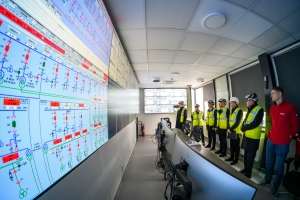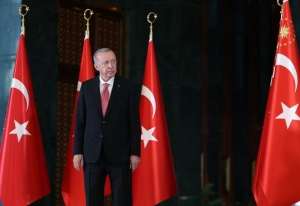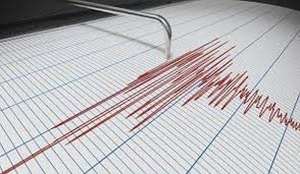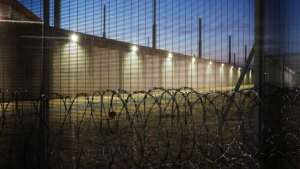Strasbourg lives a terror, terror being defined also by threat, not necessarily by terrorism in practice. The world is on alert and doing everything to prevent acts of terrorism. All week I was in Strasbourg, on a journalistic trip to the European Parliament. I still have a few hours until the Tarom flight scheduled to return to the country. Yesterday (Wednesday), Strasbourg airport was evacuated due to a bomb threat. False alarm, thankfully. The day before, two high schools in the metropolis of Strasbourg were evacuated also due to anonymous announcements regarding the presence of bombs in the educational institutions. False announcements, but the Strasbourg authorities are obliged to take everything into account. So, following the decision of Prefect Josiane Chevalier, 75 people radicalized from an Islamic point of view are forced to present themselves daily at the Prefecture during this period and are put under surveillance. On Wednesday, there were about 40 people in line in front of the Prefecture, from those who must be checked daily.
During this period, in bus and tram stations, at the train station and at the airport, messages appear on the monitors with what you should do when something seems suspicious, the number for the emergency call and the call to contact the military, according to the Vigipirate plan, that is, those from the French special forces who intervene if there are suspicions of a terrorist attack or terrorist threat. Moreover, on the website of the Prefecture and on the monitors in the stations, the message appears regarding the fact that in France the degree of risk has been raised to the level of an urgent attack.
And the threats have multiplied this week in France, where there is an important Arab or Muslim community, some of whose members have become Islamic radicalized and support the ideas of Hamas and Hezbollah. The threats of these days took place after, last week, an Islamist committed the attack at the high school in Arras, where he killed a teacher and injured several people.
After Arras, Brussels followed, with the Swedish supporters killed by an ISIS follower or Daesh, as that terrorist organization is called in France. Yesterday, the well-known French footballer Karim Benzema was at the center of a scandal because of a message expressing his support for the Muslim brothers. Because his message was misinterpreted by a French publication that linked him to the Muslim Brotherhood terrorist group, Benzema declared that he would sue that publication.
After Monday's attack in Brussels and Tuesday's bomb threats from Strasbourg high schools, all Romanian journalists present here to follow the European Parliament session that took place this week were advised to be careful where they go. walks during the day and in the evening.
However, the presence of armed soldiers on the streets is discreet and not aggressive like in Brussels. Apart from a group of three soldiers that I saw on the first day near Strasbourg Station, and two SUVs parked the next day also at the station, last night I saw a group of four soldiers in the central area, which stopped at a -food to get something to eat.
It seems, however, that the inhabitants of the metropolis located on the border between France and Germany have become accustomed to terrorist threats, following the terrorist attack on December 12, 2018, at the Christmas Market, when a Daesh follower killed three people and wounded 12 others before being eliminated by the French special forces.
Mathias, a young receptionist from the hotel where I stayed this week, told me: "It can't be worse than then. I think that since then there hasn't been a month without at least one threat. We got used to them, they are part of everyday life, life goes on and we hope that the special forces and secret services do everything they can to prevent an attack like the one in 2018".
And he is right. With 75 Islamic radicalized people, who belong to probably 75 families - in the records of the Prefecture of Strasbourg - the risk is present daily. However, French citizens make a difference between those who came over the years and stayed in Strasbourg.
Marianne, a young woman who works at the hotel bar, told me: "It is not all Arabs or all Muslims who are to blame for the attack and threats. There are exceptions, a few people who have not succeeded or even tried to adapt to the European style of life, to adopt European democratic values following their migration to France. Then there are also some Islamic religious leaders who are too vehement in preserving the Muslim tradition. But, otherwise, most of those who came to Strasbourg integrated here."
The new lifestyle or the new normality in Strasbourg can also be seen in the halls of the European Parliament. Even if the deputies discuss the events in Israel and Gaza or the recent attacks in Arras and Brussels, they do not give much importance to the latest threats of this days from Strasbourg. He believes that the high degree of vigilance of the French special forces considerably reduces the risk of a new terrorist attack.
However, on the streets near the Strasbourg train station, I could observe daily people from Africa and the Middle East who live below the limit of subsistence, in abject poverty. After nightfall, those areas should be avoided, because the risk of being the victim of a robbery is too high. It seems that globalization has also globalized poverty, because otherwise I don't understand how people, who migrate from their country to Europe to escape poverty and misery, continue to live in poverty, not to adapt and not to evolve. Or maybe, through the lens of social assistance offered by Europe to refugees from all over the world, being poor on the old continent is a luxury compared to living at home.
It is difficult to integrate everyone who comes to Europe. But if we want a safer European Union, without terrorist attacks and threats, the authorities in the member states must not stop only at the financial support given to migrants, but also take care of their education and integration into the labor market, which is faced with a rather high deficit of the necessary workforce.
Integration, not globalization, should be the slogan of all EU member states and the European institutions in Brussels and Strasbourg.



























































